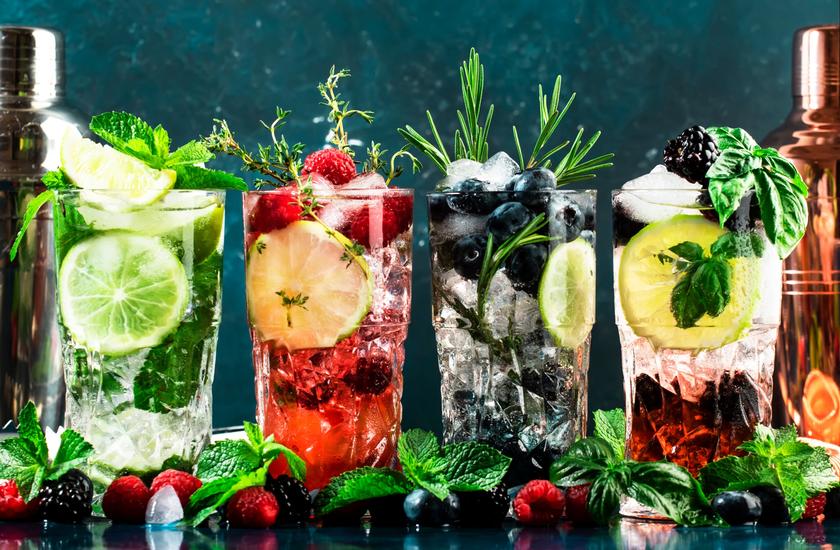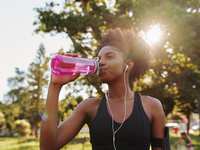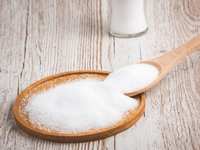Mocktails - Alcohol Free, but Does That Make Them Healthy?

By: John Dabkowski
If you've recently browsed the aisles of a grocery store or the menu at a restaurant or bar, you've probably noticed a distinct uptick in non-alcoholic options, such as 0% beer and mocktails. Beverage companies and your favorite local bar aren't just doing this out of the goodness of their hearts. The so-called "sober curious" business is booming.
According to a recent Nielsen survey, 22% of consumers report that they're drinking less, with 34% of the newly converted "sober curious" cutting back for health and wellness reasons. But are non-alcoholic options truly healthier? Are there unintended unhealthy consequences in your favorite go-to mocktail?
So what's in a mocktail?
Instead of alcohol, mocktails use a wide range of ingredients — teas, juices, sodas, infused waters, milks, herbs, syrups — to mimic the flavors, presentation and overall experience of cocktails. The first popular mocktail was the Shirley Temple, a combination of ginger ale, grenadine, and a maraschino cherry that dates to the 1930s. Today's uniquely crafted creations target adults who appreciate more sophisticated non-alcoholic drinks.
Is a non-alcoholic drink healthier?
In short, yes. Mag Ayyad, an exercise dietitian at Houston Methodist, says that taking alcohol out of any beverage is the biggest benefit of a mocktail. "Any alcohol going into our system is essentially a toxic substance," he says. "It takes a great effort for our body, our kidneys, our gut, to absorb it and get rid of it. So taking that out of the beverage is probably the biggest advantage of a mocktail."
Benefits of mocktails vs. cocktails
According to Ayyad, "studies have shown that alcohol consumption, even in the smaller recommended doses can cause alcohol induced gut inflammation, leaky gut bacterial overgrowth, some dysbiosis. So removing alcohol definitely helps avoid those issues, especially if you are prone to IBS."
Alcoholic drinks are also dehydrating. Not only do you not receive the hydration that you would from a non-alcoholic drink, but you actually add to your body's hydration debt as it has to process the alcohol that you are consuming.
Mocktails are also less addicting than cocktails. While you need to be conscious of the sugars or sweeteners in certain mocktails as those can also be addicting, alcohol dependency is more potent than a dependency on sugar. To avoid an overly sugary or sweetened mocktail, Ayyad recommends kombucha or herbal tea-based mocktails rather than juice-based options, which in turn adds to your daily fluid total in a positive way. For people who want to make their own healthy mocktails, there are no shortage of recipes online.
Finally, alcoholic drinks are more caloric than a non-alcoholic version of the exact same drink. According to Ayyad, alcohol can add seven calories per gram whenever it is added to a drink.
So can I drink as many mocktails as I want?
Not so fast. Not surprisingly, it all depends on what you're putting in your mocktail. The CDC recommends two or drinks or fewer in a day for men and no more than one drink in a day for women. Ayyad recommends the same approach for mocktails. "If the alcohol is being replaced with sweeteners, syrups or sugars, I'd recommend sticking to the same limit as you would with cocktails to limit sugar intake," he says. If you're replacing the alcohol with kombucha or tea, for example, you're able to have a higher amount per day."

















